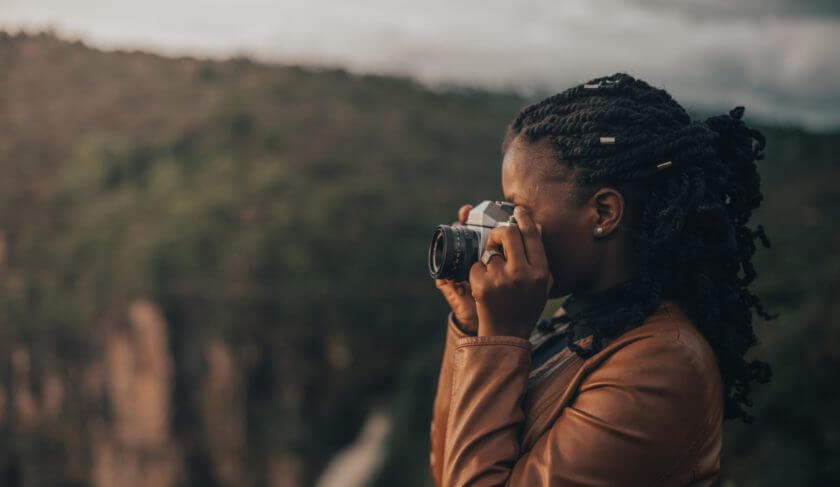
In 2008, author Malcolm Gladwell declared in his book ‘Outliers’ that you need to spend 10,000 hours doing something to be an expert. So, for example, if you want to be a finance expert, you must log 10,000 hours building your skillset, working with clients, and growing your productivity and knowledge. The same is true to become a hairstylist, a makeup artist, an illustrator, a programmer — truly any profession.
Ashley Stahl, a career expert at SoFi, says that by definition, an expert has a high level of performance in a particular subject matter or task, and they are someone to whom other people turn to for advice and insight. But in truth, there is no exam to pass to become an ‘expert’ in most industries. “Not all fields will require 10,000 hours. And, more importantly, it depends on how you apply yourself and what your natural skill set is,” she continues. “Simply putting in the hours won’t always guarantee success.”
However, giving yourself a roadmap toward the title ‘expert’ over the course of a year is a great place to start. Here how to make it your mission to build your expertise in 2022:
Figure out what you know now
While this might seem like a no-brainer, many of us do a lot of different things in our day-to-day work and personal lives. From monotonous household chores to job-specific tasks, it’s easy to fill our days fast with day-to-day essentials. However, Stahl says to ask yourself an important (and telling) question: What is that one thing that comes really easily to you? “Pick a subject or capability that is natural and enjoyable for you. Remember, anything can be monetizable. I recently met a woman who sold her Scottish Terrier figurine website for millions. Even your native language is a skill you can sell, or your ability to write is something you can offer online.”
Make sure you have passion for it
Author and philanthropist Mandy Morris argues that your ‘why’ is as important as the process. After all, if you’re going to spend 10,000 hours, one year, or any dedicated timeframe investing in a skill, you need to enjoy it. If you aren’t passionate, you’ll lose interest and speed, and you’re less likely to make it to the top level. “The reason you are on the expert’s journey has to be strong enough to drive you forward in times of momentary slumps,” she continues. “Build a ‘why’ that you can attach to a much-desired outcome, so you can see every moment spent learning has a positive end result.”
Become an expert at saying ‘no’
To become a leader within a specified niche, you can’t have one hand in ten different industries. After all, most of us already have way too much to do in the first place, so adding on ‘expertise training’ will require a rebalancing of our priorities. Stahl says to become an expert at something in a year; you also need to become an expert at saying ‘no.’
“One of the highest forms of distraction is in opportunities — and not every opportunity is meant for you, even if it’s a wonderful one,” she continues. “Make sure to focus on one thing at a time — research shows we’re not born to multitask effectively. Focus on just the one area where you want to establish yourself as an expert.”
Be deliberate
There’s no way around it: becoming an expert takes work. So it’s essential to set goals, study references and practices that will help you continuously improve. Here, Stahl shares some examples of what your year may entail:
Studying: This includes online classes, reading, watching videos, attending training, and learning from a mentor or other experts in the field.
Practice: Depending on what you want to become an expert in, you will have to practice. According to Stahl, Anders Ericsson of the University of Florida distinguishes an amateur from an expert based on deliberate practice. He defines this as ‘concentrated, goal-directed, deliberate practice that stretches your abilities beyond your comfort zone.’
Sharing: Stahl says establishing yourself as an expert isn’t just about putting in the work to become one — it’s about owning it and sharing it with the world. That’s why you should document your expertise in blogs, write journal articles, or vlog.
Be OK with being a big fish in a small pond
Stahl says when we think of establishing ourselves as experts, we often think we need to be the best in the world in our field or craft. Though that would be the case in the ideal scenario, that isn’t always true. Sometimes, your pond can be a geographical area or a place in cyberspace. And even if you are only capturing a few hundred or a few thousand, that still makes you an expert wherever you are swimming.
Establishing yourself as this level expert is making the complicated simple, teaching others, and becoming an intricate part of the community or industry.
“Teaching is the fastest way to solidify your own learning. You already know more about your field than the average person — because you work in your field,” Stahl says. “If you’re genuine and take time to research, prepare, and present a class based on what you know, over time, your knowledge will grow. Before long, people will look to you as an authority.”
MORE ON HERMONEY:
- Building Good Habits as an Investor in 2022
- Successful Olympian Habits To Help You Win Your Career + Finances
- The Morning Routines of 5 Successful Female CEOs
- HerMoney Healthline: How To Keep Good Habits While Working From Home
MORE MONEY TIPS TO HELP YOU NAVIGATE LIFE: Subscribe to HerMoney today for free!







